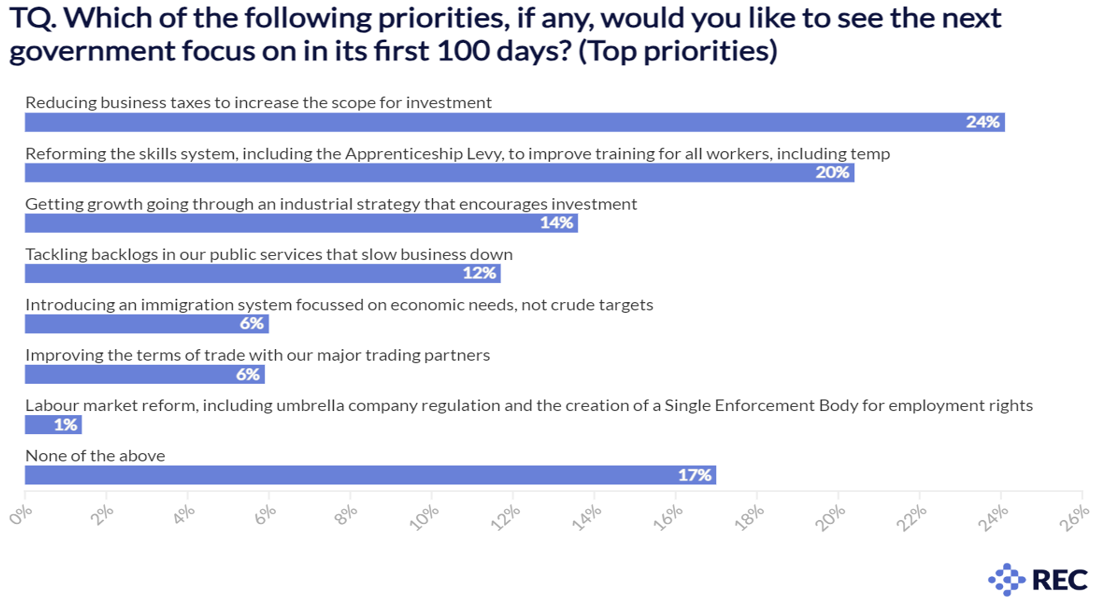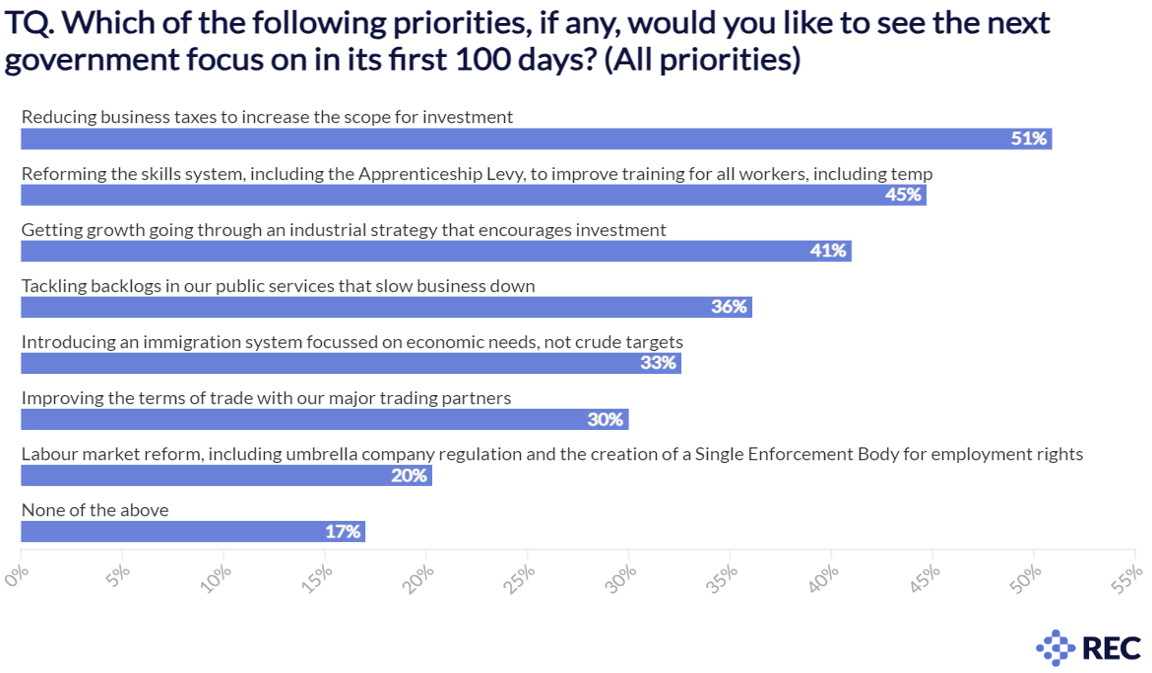REC Survey: Employers demand focus on tax and skills from the next government’s first 100 days

As the General Election campaign comes to an end, employers in a survey insist that the next government must cut business taxes and reform the skills system in its first 100 days in power.
Employers have told a Recruitment and Employment Confederation (REC)/Savanta survey* that they want the next government to focus quickly on tax and skills reforms to grow our still weak economy when the General Election campaign is over tomorrow.
Asked to select a top priority that the next government must prioritise in its first 100 days, from a list of eight options, nearly a quarter (24%) chose reducing business taxes to increase the scope for investment. And a fifth (20%) said reforming the skills system, including the Apprenticeship Levy, to improve training for all workers, including temporary workers.

More starkly, when interviewees were asked to choose as many options as they liked, more than half (51%) said reducing business taxes to increase the scope for investment, and 45% said reforming the skills system, including the Apprenticeship Levy, to improve training for all workers, including temporary workers. And 41% said getting growth through an industrial strategy that encourages investment.

Kate Shoesmith, REC Deputy Chief Executive, said:
“The next government will have to take some incredibly tough decisions. But it will frustrate employers if those decisions aren’t rooted in improving the economic outlook.
“For months, employers have said they want to invest and hire in their own businesses, but a lack of confidence in the economy means they have not. With this period of political spin and uncertainty coming to an end, cutting business taxes, having an effective industrial strategy and bringing realism into skills policies are the keys the next government must use to unlock greater investment and hiring from employers.
“The next government must act effectively in its first 100 days because growth is about people and the value they create. A labour market restricted by shortages could cost the economy up to £39 billion every year – the equivalent of two whole Elizabeth Lines.”
REC is among organisations such as the CBI and CIPD which say employers want a rethink of the Apprenticeship Levy.
Kate Shoesmith added:
“Let’s get Apprenticeship Levy reform right by enabling it to fund high-quality, modular training to enable more people, including temporary workers, to get trained and fill some of the 1.7 million job postings in the UK. Today, levy funds are only available to those who have the same employer for at least one year, which is the time it takes to complete an apprenticeship. That excludes around 960,000 workers out of the one million temporary workers on assignment in the UK every day, from accessing levy funding.”
*The telephone survey of a total of 166 employers of different sizes, locations in the UK and sectors, was carried out by Savanta in June 2024.











Responses